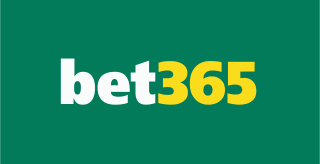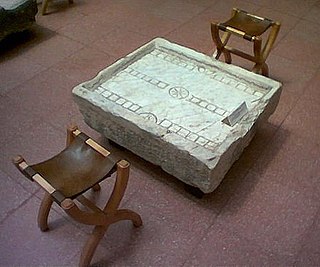Provisions
The act gives its objectives as
- preventing gambling from being a source of crime or disorder, being associated with crime or disorder or being used to support crime,
- ensuring that gambling is conducted in a fair and open way, and
- protecting children and other vulnerable persons from being harmed or exploited by gambling.
Some provisions of the bill faced controversy, particularly in its original form, where it would have allowed eight so-called "super casinos" to be set up. With the parliamentary session drawing to a close, a compromise was agreed to reduce this to one. [2] Despite a lengthy bidding process, with Manchester being chosen as the single planned location, the development was cancelled soon after Gordon Brown became Prime Minister of the United Kingdom. [3] The act also specifically regulates Internet gambling for the first time.
One of the biggest changes was the removal of the "debt of honour" exemption which stopped people from taking legal action over unpaid winnings (which had been law since the Gaming Act 1845). Under the 2005 act's section 335 "Enforceability of gambling contracts", punters were now able to take legal action over unpaid winnings in a court of law. [4]
The law permits gambling companies to advertise on television and radio. [5]
The act is wide-ranging including regulation of lotteries. The "no purchase necessary" clause on on-product promotions and semi-legal competitions went, replaced with the so-called "New Zealand Model" where purchase may be a requirement, if the purchase is at the "normal selling price".
The act, together with regulations and specifications developed by the Gambling Commission, define and in some cases redefine, categories of gaming machines and where they are allowed to be placed.

A slot machine, fruit machine, poker machine or pokies is a gambling machine that creates a game of chance for its customers. Slot machines are also known pejoratively as one-armed bandits, alluding to the large mechanical levers affixed to the sides of early mechanical machines, and to the games' ability to empty players' pockets and wallets as thieves would.

Native American gaming comprises casinos, bingo halls, slots halls and other gambling operations on Indian reservations or other tribal lands in the United States. Because these areas have tribal sovereignty, states have limited ability to forbid gambling there, as codified by the Indian Gaming Regulatory Act of 1988. As of 2011, there were 460 gambling operations run by 240 tribes, with a total annual revenue of $27 billion.

A bookmaker, bookie, or turf accountant is an organization or a person that accepts and pays out bets on sporting and other events at agreed-upon odds.
Online casinos, also known as virtual casinos or Internet casinos, are online versions of traditional casinos. Online casinos enable gamblers to play and wager on casino games through the Internet. It is a prolific form of online gambling.
Online gambling is any kind of gambling conducted on the internet. This includes virtual poker, casinos, and sports betting. The first online gambling venue opened to the general public was ticketing for the Liechtenstein International Lottery in October 1994. Today, the market is worth around $40 billion globally each year, according to various estimates.
Gambling in the United Kingdom is regulated by the Gambling Commission on behalf of the government's Department for Digital, Culture, Media and Sport (DCMS) under the Gambling Act 2005. This Act of Parliament significantly updated the UK's gambling laws, including the introduction of a new structure of protections for children and vulnerable adults, as well as bringing the burgeoning Internet gaming sector within British regulation for the first time.
A gaming control board (GCB), also called by various names including gambling control board, casino control board, gambling board, and gaming commission, is a government agency charged with regulating casino and other types of gaming in a defined geographical area, usually a state, and of enforcing gaming law in general.
Gaming law is the set of rules and regulations that apply to the gaming or gambling industry. Gaming law is not a branch of law in the traditional sense but rather is a collection of several areas of law that include criminal law, regulatory law, constitutional law, administrative law, company law, contract law, and in some jurisdictions, competition law. At common law, gambling requires consideration, chance and prize, legal terms that must be analyzed by gaming lawyers within the context of any gaming operation.

The British Columbia Lottery Corporation is a Canadian Crown corporation that manages all legal gambling products in British Columbia including lottery tickets, casinos and online gambling. It is based in Kamloops, with a secondary office in Vancouver. It consists of three business units: Lottery, Casino and eGaming. Its annual revenues exceed CDN $1.6 billion. It has 890 direct employees. Its service providers, who run casinos on its behalf under contract, have an additional 8,300 employees.
Gambling in India varies by state; states in India are entitled to formulate their own laws for gambling activities. Some states like Goa have legalised casinos. Common gambling activities like organized betting are restricted except for selective categories including lottery and horse racing.

Bet365 is a British gambling company founded in 2000. Its product offering includes sports betting, online casino, online poker, and online bingo. Business operations are conducted from its headquarters in Stoke-on-Trent, alongside a satellite office in Malta. It was founded by Denise Coates, who remains the majority shareholder and joint-chief executive, alongside her brother John Coates.

The Gambling Commission is an executive, non-departmental public body of the Government of the United Kingdom responsible for regulating gambling and supervising gaming law in Great Britain. Its remit covers arcades, betting, bingo, casinos, slot machines and lotteries, as well as remote gambling, but not spread betting. Free prize competitions and draws are free of the Commission's control under the "Gambling Act 2005".

The Isle of Man Gambling Supervision Commission is the Gaming Control Board of the Isle of Man. It regulates most forms of gambling in its territory including land based and online gambling services.

Gambling in Russia is legal in four regional subject areas, and in 2009 was made illegal in all other areas of Russia.
Gambling in Pennsylvania includes casino gambling, the Pennsylvania Lottery, horse racing, bingo, and small games of chance conducted by nonprofit organizations and taverns under limited circumstances. Although casino gaming has been legal for less than two decades, Pennsylvania is second only to Nevada in commercial casino revenues.

Slot machine terminology, characteristics and regulations vary around the world.

Gambling in Italy has existed for centuries and has taken on many forms. Its dates back to the days of the Roman Empire, when the predecessor of the modern game of backgammon, Ludus Duodecim Scriptorum, became popular among Roman legionnaires. It is also due to them that the game came to other European countries.
Gambling in Estonia is relatively young. While Estonia was a part of the USSR, all types of gambling activities were banned. Despite the prohibition, illegal casinos still functioned, but the real history of gambling started in 1994-1995 when the first Lottery Act of 1994 and the first Gambling Act of 1995 came into power. As the capitol, Tallinn has more casinos than any other Estonian town. As of September 2010, there were 33 casinos in Tallinn. That's 3 times less than in 2008, when 91 gambling venues operated in this city. According to experts, the main reasons for such decrease were the consequences of the crisis and the adoption of the new gambling law in 2008. The legal age for playing at casinos is 21.
Gambling has been present in the Philippines since at least the sixteenth century. Various legal and illegal forms of gambling are found almost all over the archipelago. The government manages gambling through the Philippine Amusement and Gaming Corporation (PAGCOR) a state-owned enterprise which both operates a number of individual casinos and in turn acts as a regulator to privately owned casino operators. Since 2016 PAGCOR has also granted operating licenses and overseen the regulation of growing online gambling sector serving offshore markets. Casino gambling and integrated resorts have become a key component of the Philippines appeal as a tourist destination with more than twenty casinos found in Metro Manila alone.
Gambling in Singapore is controlled by several statutes, being the Casino Control Act, Gambling Control Act and the Gambling Regulatory Authority of Singapore Act. The Gambling Regulatory Authority of Singapore (GRA) was formed on 1 August 2022, by reconstituting the Casino Regulatory Authority of Singapore (CRA), to regulate gambling in Singapore. It is a statutory board under the Ministry of Home Affairs of Singapore.









